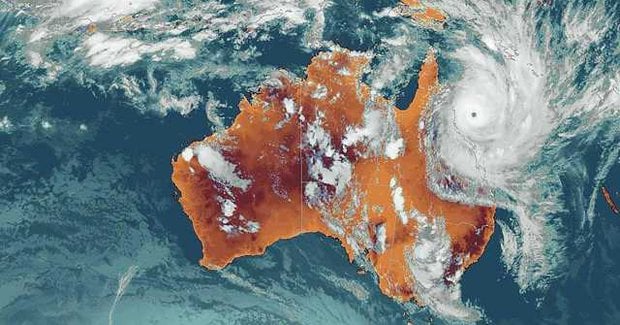
The Bureau of Meteorology (BOM) has warned Queensland residents about the potential “widespread severe impacts” of a category two cyclone tracking towards the QLD coast. Locals have been advised to stock up on supplies in advance of the weather system, expected to hit northern Queensland on Thursday.
If you are in a region predicted to be impacted, the important thing is not to panic but to do everything you can to prepare. There are lots of practical steps you can take to mitigate against potential impacts of a cyclone, helping ensure you are in the best possible position to receive support in the aftermath.
1. Ensuring Personal Safety
The safety of yourself and those around you is of paramount importance during extreme weather conditions. You can both prepare ahead of time and take steps to ensure you are keeping safe when storms hit. James Cook University has put together a full checklist here, and QFES has specific advice on cyclones here.
You can read some key points below:
- Prepare an emergency kit. This can include a portable battery radio, torch and spare batteries; water containers, dried or canned food and a can opener; matches, fuel lamp, portable stove, cooking gear, eating utensils; and a first aid kit and manual, masking tape for windows and waterproof bags.
- Stock up on non-perishable foods, fill containers with drinking water.
- Have your phone and a backup battery bank charged, this allows you to monitor the latest emergency advice and call for help if needed/where possible.
- Know where to go for information and warnings – some suggested resources are listed at the end of the blog.
- Have all the information for your emergency contacts on hand.
- Wear strong shoes and tough clothing for protection.
- Turn off all electricity, gas and water supplies.
- Stay inside and shelter (well clear of windows) in the strongest part of the building, i.e. cellar, internal hallway or bathroom. Keep evacuation and emergency kits with you.
- Disconnect all electrical appliances.
- Listen to your battery radio for updates, including evacuation orders.
- If the building starts to break up, protect yourself with mattresses, rugs or blankets under a strong table or bench or hold onto a solid fixture, e.g. a water pipe.
- Check for gas leaks. Don’t use electric appliances if wet.
- If you are evacuating to a public shelter or higher location, follow the directions of Queensland Police Service and emergency services personnel. Homes in low-lying coastal areas may be advised to evacuate early.
Don’t go outside until officially advised it is safe by authorities.
There are several things you can do to help limit the possibility of damage to your property. The Queensland government has a good checklist you can read here, but key points include:
- Clear your property of loose material that could blow about and possibly cause injury or damage during extreme winds. This could include outdoor furniture; trampolines; gardening tools.
- Check that the walls, roof and eaves of your home or business are secure.
- Clean your gutters, downpipes and drains to ensure they are not blocked.
- Trim treetops and branches well clear of your home/business. Be careful of any overhead powerlines.
- Close shutters or board-up or heavily tape all windows. Draw curtains and lock doors.
- Park vehicles under solid shelter (hand brake on and in gear).
You might need to quickly access essential data in an emergency. In advance, compile a list of employees, suppliers, products, and anything else you would need at short notice. Save all of this on a USB stick or something similar so it can be easily retrieved, particularly if your technology infrastructure is damaged.
Before a cyclone makes landfall, collate all your insurance policy details and make sure you have these on hand. This may include:
- Essential contact details easily accessible for each of your insurers or your insurance broker’s contact details
- Policy numbers and documentation
- Policyholder identification, alongside any passwords or security questions you might need. Your insurance broker will be available to expedite claims process, navigating it on your behalf and ensuring you are correctly compensated for any damage, as per the applicable policy wording.
In the event your contents or business equipment are damaged, an accurate inventory can help you determine exactly what has been lost and everything you will want to claim insurance on.
Tip: To speed up this process, create a comprehensive photo collection or video documenting these items.
While mother nature can throw unpredictable weather our way, taking steps to prepare can help to limit the extent and severity of impact an event like this can have on your life. If the worst does happen, early preparation and organisation can make dealing with claims easier post event. Alongside putting steps in place to protect your own home and business, encourage, friends, family members and neighbours to do the same.
- Find your local ABC Radio Station
- Find your local commercial radio